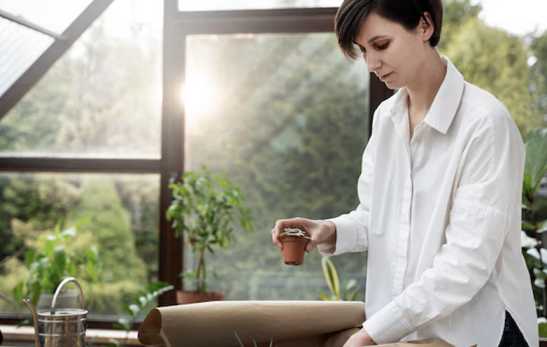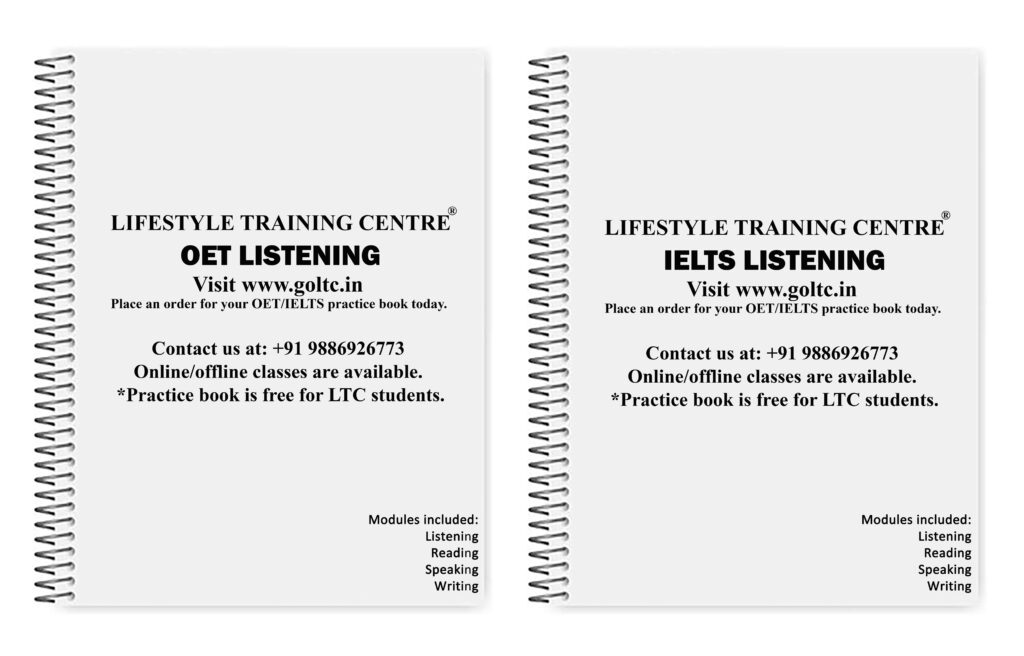Task 1
1. How would you describe today’s weather?
Today’s weather is nothing short of delightful, with blue skies stretching endlessly and a warm, gentle breeze caressing the surroundings. The temperature hovers around 28°C, making it ideal for outdoor activities like a leisurely walk or a relaxing picnic. The sun is shining brightly, casting a golden glow on the lush greenery that Konni is known for. It’s the kind of day that lifts your spirits and makes you want to embrace the outdoors. Days like this remind me of how fortunate we are to enjoy such natural beauty.
2. What type of weather do you enjoy the most, and why does it appeal to you?
I’ve always had a soft spot for mild and balmy weather, where the temperature is just right—not too hot and not too cold. It’s the perfect balance that allows me to soak in the sunshine without feeling overwhelmed. This kind of weather is ideal for indulging in activities like hiking or simply sitting outside with a book and a cup of tea. What seals the deal for me is the light breeze that adds a sense of calmness to the environment. It’s a soothing escape from the hustle and bustle of daily life.
3. If you had to choose, what’s your ideal weather for relaxation? Why?
My idea of the perfect weather for relaxation is the gentle drizzle of the monsoon season, with cool, damp air and the rhythmic sound of raindrops falling on the leaves. It’s a time when nature comes alive, and the earthy aroma of fresh rain fills the air. I enjoy sitting by the window with a hot cup of coffee, watching the rain as it washes away the dust and rejuvenates the landscape. This weather creates an atmosphere of tranquillity that helps me recharge my batteries. It’s like the world is hitting the refresh button, and I find immense peace in that.
4. How do you usually spend time during your favourite season?
During my favourite season, the monsoon, I love to explore the rain-drenched forests and pristine rivers that Konni has to offer. It’s also a great time for enjoying traditional hot snacks like banana fritters while savouring the sound of raindrops tapping on the roof. My family and I often gather in the veranda to share stories, laugh, and enjoy the cosy atmosphere. I also make it a point to take long walks, soaking in the natural beauty and letting my thoughts wander freely. The monsoon is my escape into serenity and nature’s splendour.
5. Can you describe the typical weather in your hometown throughout the year?
Konni’s weather is nothing if not diverse, as it experiences a tropical climate. Summers can be quite warm and humid, with temperatures often exceeding 30°C, while the monsoon season brings heavy downpours that breathe life into the flora and fauna. Winters are mild and comfortable, perfect for outdoor festivities and family gatherings. The transition between seasons keeps things interesting, ensuring there’s never a dull moment. This dynamic climate is a testament to the region’s natural richness and beauty.
6. Do you think the climate in your area suits your lifestyle? Why or why not?
I believe the tropical climate of Konni is a double-edged sword—it has its perks but also its challenges. The lush greenery and vibrant wildlife are a result of the abundant rainfall, which I adore. However, the high humidity during summer can be a bit taxing, making outdoor activities a bit of a chore. On balance, though, I think the climate complements my lifestyle well. It keeps me connected to nature and provides ample opportunities to unwind and rejuvenate.
7. How frequently does your hometown experience pleasant weather?
Konni is fortunate to enjoy a fair share of pleasant weather, particularly during the cooler months and early monsoon season. These times offer a refreshing break from the heat, with moderate temperatures and a comforting breeze. However, heavy rains during the monsoon can occasionally disrupt daily life, such as causing waterlogging in certain areas. Still, the region bounces back quickly, and the beauty of the rain-soaked landscape more than makes up for it. It’s a small price to pay for living in such a naturally gifted area.
8. What’s the most memorable thing you’ve done when the weather was exceptionally good?
The last time the weather was truly spectacular, I went on a trek through the nearby forests with my friends. The air was crisp, the sunlight filtered through the dense canopy, and the sound of birdsong filled the atmosphere. We discovered a hidden waterfall, where we spent hours laughing, taking pictures, and soaking in the pristine surroundings. It felt like a scene straight out of a travel magazine. Moments like these are the ones you cherish forever, as they remind you of the beauty of nature and the joy of companionship.
9. Between sunny and rainy weather, which one do you prefer, and why?
While sunny days have their charm, I find rainy weather far more appealing. The pitter-patter of raindrops and the cool breeze create a calming effect that sunny days often lack. Rainy weather is also perfect for curling up with a good book, indulging in nostalgic conversations, or simply reflecting on life. The rain adds a poetic touch to the surroundings, washing everything clean and renewing your spirit. It’s a kind of beauty that’s impossible to replicate.
10. How do different types of weather influence your mood or daily activities?
Weather has a profound impact on my mood and daily life. Sunny weather boosts my energy levels, encouraging me to go outside and be active. On the other hand, rainy weather often makes me feel introspective and creative, inspiring me to write, paint, or simply relax. Extreme weather, like intense heat, can be draining, but it also teaches resilience and the value of adapting. As they say, every cloud has a silver lining, and I try to embrace the positives of each type of weather.
List of Vocabulary, Idioms, and Phrases Used: (task 1)
- Delightful – Pleasing or charming.
- Caressing – Gently touching or soothing.
- Hovers – Remains in place or moves slightly above something.
- Soak in – To fully absorb or enjoy an experience.
- Rejuvenate – To refresh or make someone or something feel younger or more alive.
- Drenched – Completely soaked or covered with water.
- Rhythmic – Having a regular beat or pattern.
- Pristine – Pure, unspoiled, or untouched by human activity.
- Splendour – Magnificent or impressive beauty.
- Dynamic – Constantly changing, energetic, or full of life.
- Taxing – Demanding or challenging.
- Abundant – Existing in large amounts; plentiful.
- Downpours – Heavy rainfall.
- Tranquillity – A state of calm and peace.
- Nostalgic – Sentimental longing for the past.
- Resilience – The ability to recover quickly from difficulties.
- Akin – of similar nature or character.
Idioms
- Nothing short of delightful – Completely enjoyable or pleasing.
- Seals the deal – Finalises or makes something more appealing.
- Double-edged sword – Something that has both advantages and disadvantages.
- Ample opportunities – Plenty of chances or possibilities.
- A fair share – A reasonable amount.
- A small price to pay – A minor inconvenience for a larger benefit.
- Straight out of a travel magazine – Something exceptionally beautiful or picturesque.
- Every cloud has a silver lining – There is something positive in every bad situation.
Phrases
- Blue skies stretching endlessly – A clear and uninterrupted sky.
- Golden glow – Warm and bright light, often associated with the sun.
- Gentle drizzle – Light rain.
- Earthy aroma – The natural and pleasant smell of soil, often after rain.
- Hit the refresh button – To start anew or rejuvenate.
- Rhythmic sound of raindrops – The patterned noise of rain falling.
- Pitter-patter of raindrops – The soft tapping sound made by rain.
- Washes away the dust – Cleanses or refreshes.
- Boosts my energy levels – Increases enthusiasm or activity.
- Adds a poetic touch – Makes something more beautiful or emotional.
4. Topic: An Important Environmental Issue
– Question 4: Describe an important environmental issue in your region.
– You should say:
– What is the issue, and how does it affect your area?
– What actions have been taken to address it?
– What can individuals do to contribute to the solution?
– Why is this issue important to you?
Task 3: Follow-Up Questions and Answers
1. What do you think are the long-term consequences of ignoring environmental issues?
The long-term effects could be nothing short of disastrous, impacting both nature and humanity. Ignoring these issues may lead to irreversible damage such as biodiversity loss, frequent natural disasters, and severe resource scarcity. This could create a ripple effect, destabilising economies and forcing migrations on an unprecedented scale. It’s akin to living on borrowed time, and we cannot afford further inaction.
2. How can businesses contribute to solving environmental challenges?
Businesses have a golden opportunity to lead by example by adopting eco-friendly practices. From switching to renewable energy to implementing waste-reduction strategies, companies can set the tone for a sustainable future. Many organisations have started greening their operations, such as reducing carbon footprints and adopting circular economies. The private sector’s ability to innovate makes it a force to be reckoned with in the fight against environmental degradation.
3. Do you believe the younger generation is more environmentally conscious than the older one?
I do believe the younger generation is more aware, thanks to widespread access to information and education. They often embrace green lifestyles and are vocal advocates for change. However, they also face the challenge of walking the talk, as conveniences often outweigh convictions. In contrast, the older generation may have been less informed but lived simpler lives with fewer carbon-heavy habits. Both generations can learn from each other.
4. How has climate change directly affected your daily life?
Climate change has reared its ugly head in various ways, such as erratic weather patterns and rising temperatures. This has disrupted traditional agricultural cycles and increased energy costs due to higher cooling needs. It’s also resulted in more frequent natural calamities, throwing life into disarray. On a personal level, it’s made me more cautious and driven to adopt environmentally friendly habits.
5. Should governments prioritise environmental conservation over economic development?
Striking a balance between the two is essential, as one cannot thrive without the other. However, prioritising conservation ensures the long-term viability of resources that economic growth depends on. Neglecting the environment for short-term gains is akin to killing the goose that lays the golden eggs. A sustainable approach would involve policies that encourage eco-friendly industries and penalise exploitative practices.
6. What are some small changes people can make to live a more eco-friendly lifestyle?
Small changes, when multiplied, can lead to monumental impacts. For instance, using reusable bags, conserving water, and switching to energy-efficient appliances can go a long way. Planting trees and reducing single-use plastics are also steps in the right direction. These actions may seem minor, but they collectively help move the needle toward a greener future.
7. Do you think environmental documentaries and films have an impact on public awareness?
Absolutely, such media acts as a wake-up call, showcasing the real-time consequences of environmental degradation. Powerful visuals and compelling narratives strike a chord with viewers, inspiring them to rethink their habits. Documentaries like Our Planet have successfully sparked conversations and encouraged behavioural changes. It’s proof that awareness is the first step toward turning over a new leaf.
8. How do cultural beliefs and traditions influence environmental practices in your region?
In my region, many traditions emphasise living in harmony with nature, reflecting the age-old wisdom of our ancestors. Rituals like planting trees during festivals and respecting rivers as sacred instil a sense of responsibility toward the environment. Unfortunately, modern lifestyles have overshadowed these practices to some extent, but there is growing interest in reviving them. These cultural connections can serve as a guiding light in fostering environmental stewardship.
9. What is the role of education in solving environmental issues?
Education plays a cornerstone role by equipping people with the knowledge to make informed decisions. From understanding the science of climate change to learning about sustainable practices, education lays the groundwork for a greener tomorrow. Schools can cultivate eco-conscious citizens through activities like tree-planting drives and recycling workshops. Knowledge is power, and education provides the tools to tackle problems head-on.
10. Do you think urbanisation poses a bigger threat to the environment than rural practices?
Urbanisation is often a double-edged sword; while it drives progress, it also consumes vast amounts of natural resources. Cities contribute to pollution, deforestation, and the loss of ecological balance. On the other hand, some rural practices, like overgrazing and slash-and-burn agriculture, are also detrimental. Both urban and rural areas must put their heads together to implement sustainable practices that benefit everyone.
Vocabulary with Short Meanings (task 3)
- Ripple effect – A series of indirect consequences caused by an event.
- Borrowed time – A period that is uncertain and may end soon.
- Greening – The process of making something more environmentally friendly.
- Carbon footprint – The total amount of greenhouse gases produced by an individual or activity.
- Circular economy – An economic system aimed at eliminating waste and continual use of resources.
- Erratic – Unpredictable or inconsistent.
- Viability – The ability to work successfully or sustainably.
- Monumental – Of great importance or significance.
- Wake-up call – A warning or event that makes people more aware of a problem.
- Ecological balance – A state where natural systems are in harmony.
Idioms
- Nothing short of disastrous – Extremely bad or severe.
- Set the tone – Establish a particular mood or character.
- Force to be reckoned with – Something or someone powerful and important.
- Walking the talk – Acting according to one’s stated beliefs or promises.
- Reared its ugly head – Something unpleasant that becomes apparent.
- Killing the goose that lays the golden eggs – Destroying something that brings consistent benefits.
- Move the needle – To make a significant difference or impact.
- Strike a chord – To cause someone to feel a strong emotion or connection.
- Turn over a new leaf – To start behaving in a better or more responsible way.
- Double-edged sword – Something that has both advantages and disadvantages.
Phrases
- Adopting eco-friendly practices – Embracing methods that are beneficial for the environment.
- Lead by example – To show others how to act by acting in that way yourself.
- Living in harmony with nature – Coexisting peacefully with the natural environment.
- Steps in the right direction – Positive actions toward a goal.
- A greener tomorrow – A future that is environmentally sustainable.
- Guiding light – Something that serves as an example or inspiration.
- Cornerstone role – A crucial or fundamental role in something.
- Tackle problems head-on – To deal with issues directly and with determination.
- Age-old wisdom – Knowledge or practices passed down through generations.
- Put their heads together – To collaborate and think collectively.
IELTS Speaking Task Topics
Click on any topic to explore more!
Names

Learn about the importance of names and their cultural significance.
Study / Job

Discuss various aspects of studying and working in different fields.
Hometown

Explore the charm of your hometown and its unique features.
Accomodation

Understand various types of accommodation and living situations.
Weather

Learn about how weather influences daily life and activities.
Time

Discuss the concept of time, its importance, and time management.
Television

Talk about the role of television in modern entertainment.
Museum

Discuss the cultural importance of museums and historical exhibits.
Holidays

Explore the significance of holidays and different celebrations.
Films

Learn about the impact of films on culture and society.
Leisure Time

Discuss how leisure activities impact personal well-being.
Sport

Talk about the role of sports in health, entertainment, and culture.
Vegetables and Fruits

Discuss the health benefits and importance of fresh produce.
Maths

Explore the role of mathematics in various aspects of life.
Sky

Discuss the beauty and scientific significance of the sky.
Clothes&Fashion

Explore how clothing reflects culture and personal expression.
Weekend

Discuss the importance of weekends and ways people relax.
Reading

Learn about the importance of reading and various reading habits.
Sleep

Explore how sleep impacts physical and mental well-being.
Trees&Plants

Discuss the environmental and health benefits of plants.
Newspaper

Discuss the evolving role of newspapers in the digital age.
Texting

Explore the role of text messaging in modern communication.
Memorising

Learn techniques for improving memory and memorization.
Travelling

Discuss the importance and impact of traveling in modern society.
Communication

Explore the modes and significance of communicating well
Letter&Email

Explore the differences and significance of letters vs. emails.
Swimming

Discuss the benefits of swimming for health and fitness.
Snacks

Explore the role of snacks in daily nutrition and lifestyle.
Photography

Discuss photography’s cultural and artistic significance.
Help

Talk about the importance of offering and receiving help.
History

Discuss historical events and their impact on modern society.
Handwriting

Explore the significance of handwriting in education and culture.
Music

Learn about the influence of music on emotions and society.
Colours

Discuss how colours affect perception and mood.
Teachers

Explore the role of teachers in shaping students’ futures.
Being Alone

Talk about the experience and benefits of spending time alone.
Teamwork

Learn the importance of teamwork in professional and social contexts.
Countryside & City

Explore the charm and benefits of living in the countryside.
Social Media

Discuss the impact of social media on society and relationships.
Friends

Explore the importance of friendships in life.
Artificial Intelligence (AI)

Talk about the future of AI and its role in society.
Climate Change

Discuss the causes and consequences of climate change.
Transportation

Explore different modes of transportation in your area.
Sustainable Transportation

Explore ways to make transportation more environmentally friendly.
Space Exploration

Learn about the latest advancements in space exploration.
Shopping

Explore how shopping influences culture and the economy.
Modern Technology

Discuss how modern technology is reshaping society.
Technology

Learn about the role of technology in everyday life.
Sustainable Living

Explore ways to live sustainably for the future of the planet.
Globalisation

Learn about the effects of globalisation on society and economies.
Global Warming

Discuss the causes, effects, and solutions to global warming.
Gender Equality

Explore the importance of gender equality in modern society.
Health and Fitness

Discuss the importance of maintaining a healthy lifestyle.
Renewable Energy

Learn about renewable energy sources and their impact on the environment.
Cultural Traditions in Kerala

Explore the unique cultural traditions of Kerala, your hometown.
Cultural Traditions in Your Country

Learn about the cultural traditions in your country.
Education System

Discuss the education system in your country and its effectiveness.
Traditional Cuisine

Explore the significance of traditional cuisines in your culture.
Do you need printed IELTS/ OET practice material? Place your order today. Available now for just Rs: 1,100 (including shipping all across India) Contact us at our WhatsApp number: +91 9886926773 to place your order. (Free for LTC students)

We hope this information has been valuable to you. If so, please consider a monetary donation to Lifestyle Training Centre via UPI. Your support is greatly appreciated.

Would you like to undergo training for OET, PTE, IELTS, Duolingo, Phonetics, or Spoken English with us? Kindly contact us now!
📱 Call/WhatsApp/Text: +91 9886926773
📧 Email: mail@goltc.in
Visit us in person by following the directions on Google Maps. We look forward to welcoming you to the Lifestyle Training Centre.
Follow Lifestyle Training Centre on social media:
Thank you very much!
